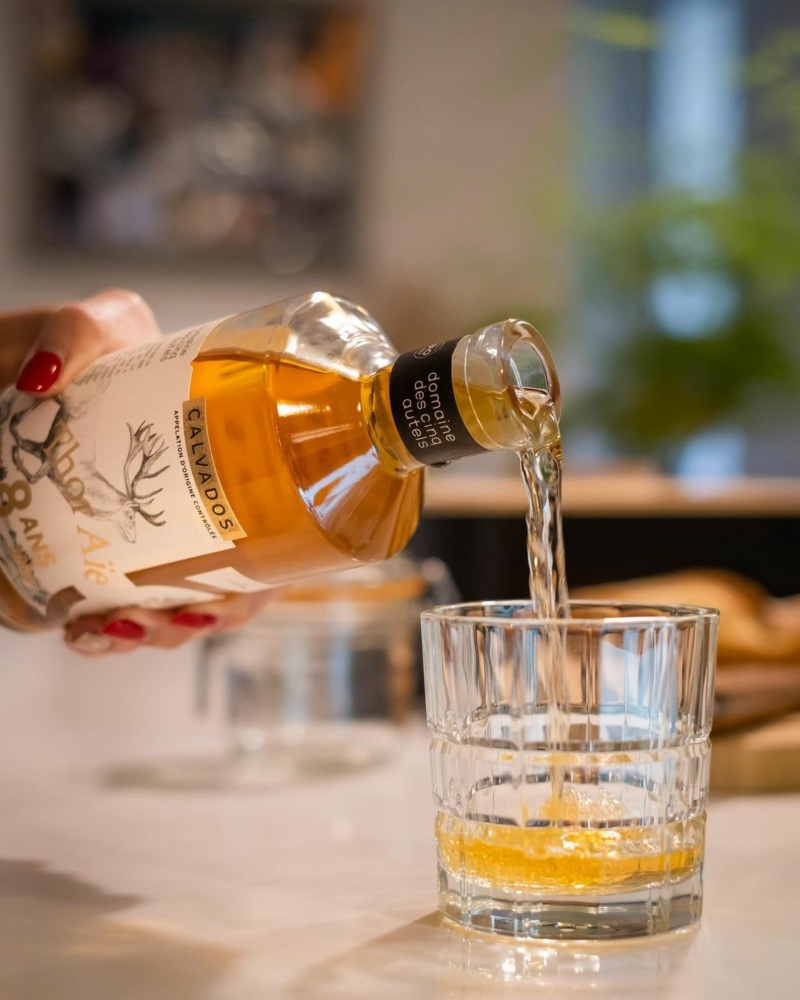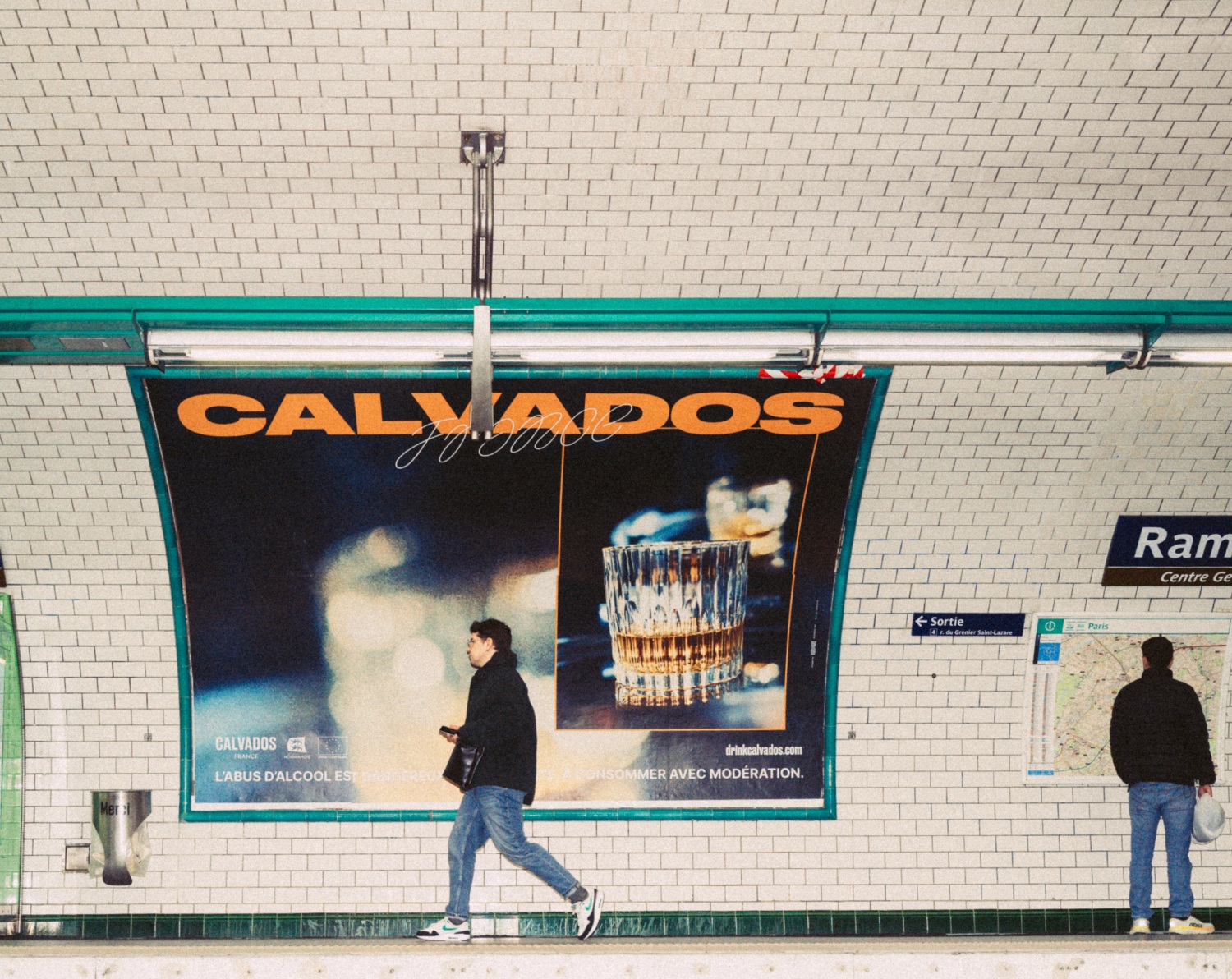The art of sustainable Calvados at the Domaine des 5 Autels
Thibault Pitrou: A dedicated producer sharing his vision for Calvados.
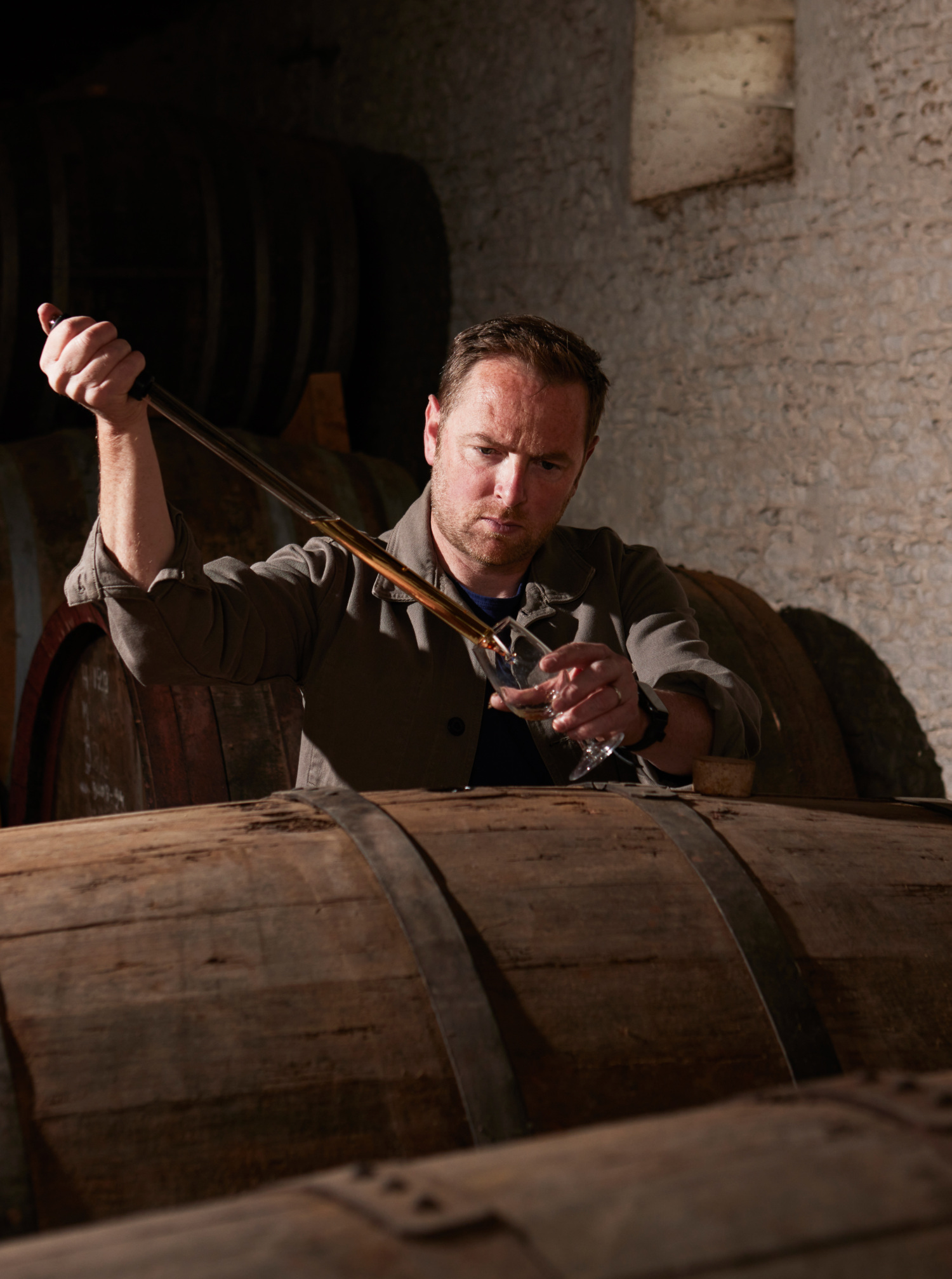
Could you introduce the Domaine des 5 Autels?
The Domaine des 5 Autels has been a family-run estate for four generations. Founded at the beginning of the 20th century by my great-grandfather, it was transformed into an organic farm in 1967 under the guidance of Maurice, my grandfather.
In the 1980s, my father planted 13 hectares of orchards and expanded the production of organic ciders and Calvados, prioritizing natural methods without sulfites or chemical additives.
In 2019, I took over the estate with Pierre. We met while working at Alstom, where we were both employees. As we talked, we discovered that our family histories were connected: his great-grandfather was the veterinarian for my grandparents in Normandy. This coincidence brought us closer, and together, we decided to bring fresh energy to the business.
Today, we remain deeply committed to our environmental values. Our goal is to achieve carbon-neutral production quickly, including a shift to reusable bottles and the gradual replacement of oil heating with a wood-fired boiler powered by trimmings from our orchards. Finally, we are proud to offer a 100% organic range of Calvados, aged up to 25 years.
Have you always wanted to take over the family estate?
No, when I was younger, I really wanted to do something else. I started a career as an engineer, but after 15 years working as an employee in a large company, I felt the need to bring more meaning to my professional journey.
The idea began to grow when, with my siblings, we had to think about the future of the family business. There wasn’t really a clear way to pass it on, but it was hard for me to just cut ties with our history.
The real turning point came one day when I walked into a fine grocery store in La Rochelle and saw cider products being sold at much higher prices than ours, thanks to better marketing. I thought to myself that, with our artisanal and sustainable production methods, our ciders and Calvados deserved much better promotion. This frustration eventually led me to continue the work started by my parents and my grandfather before them.
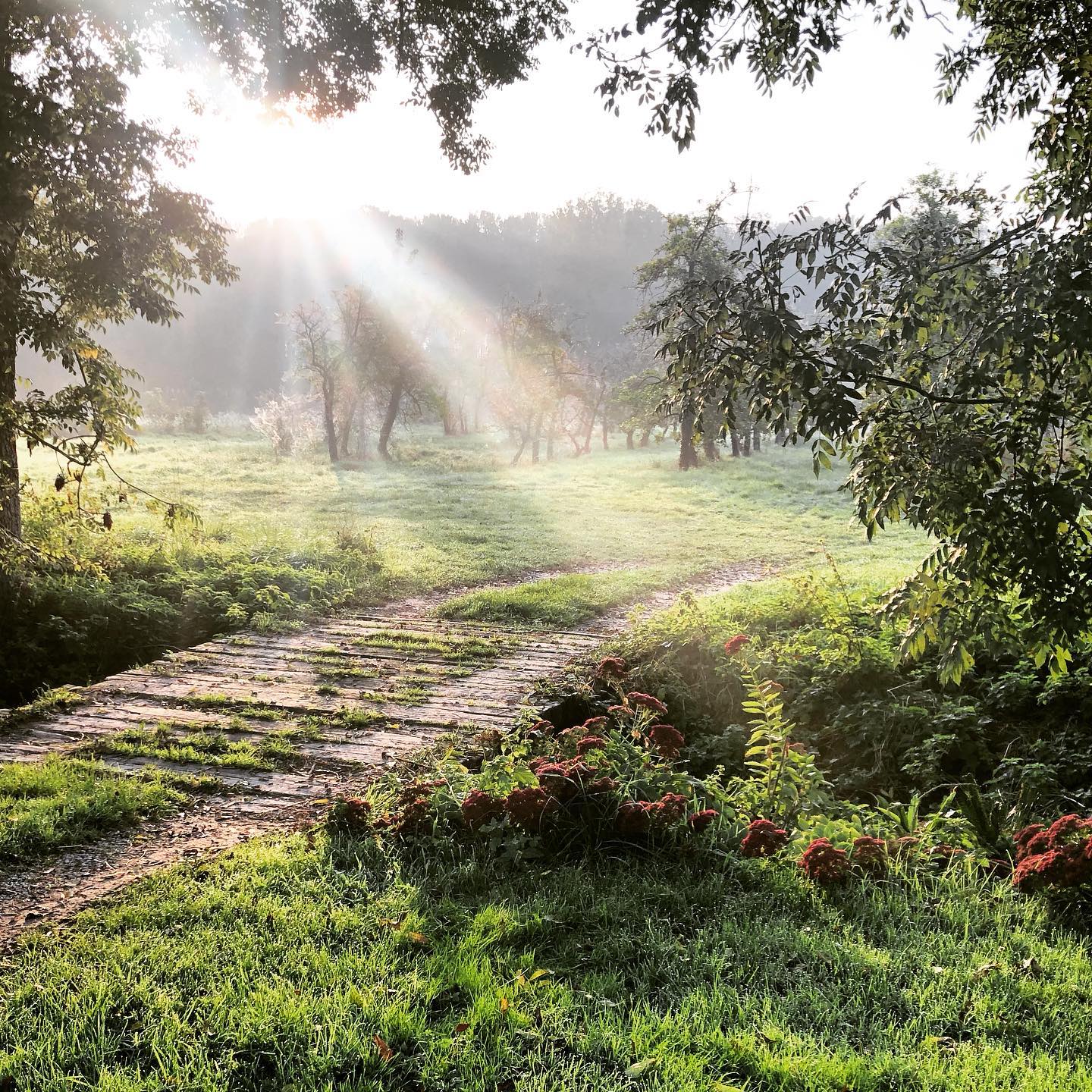
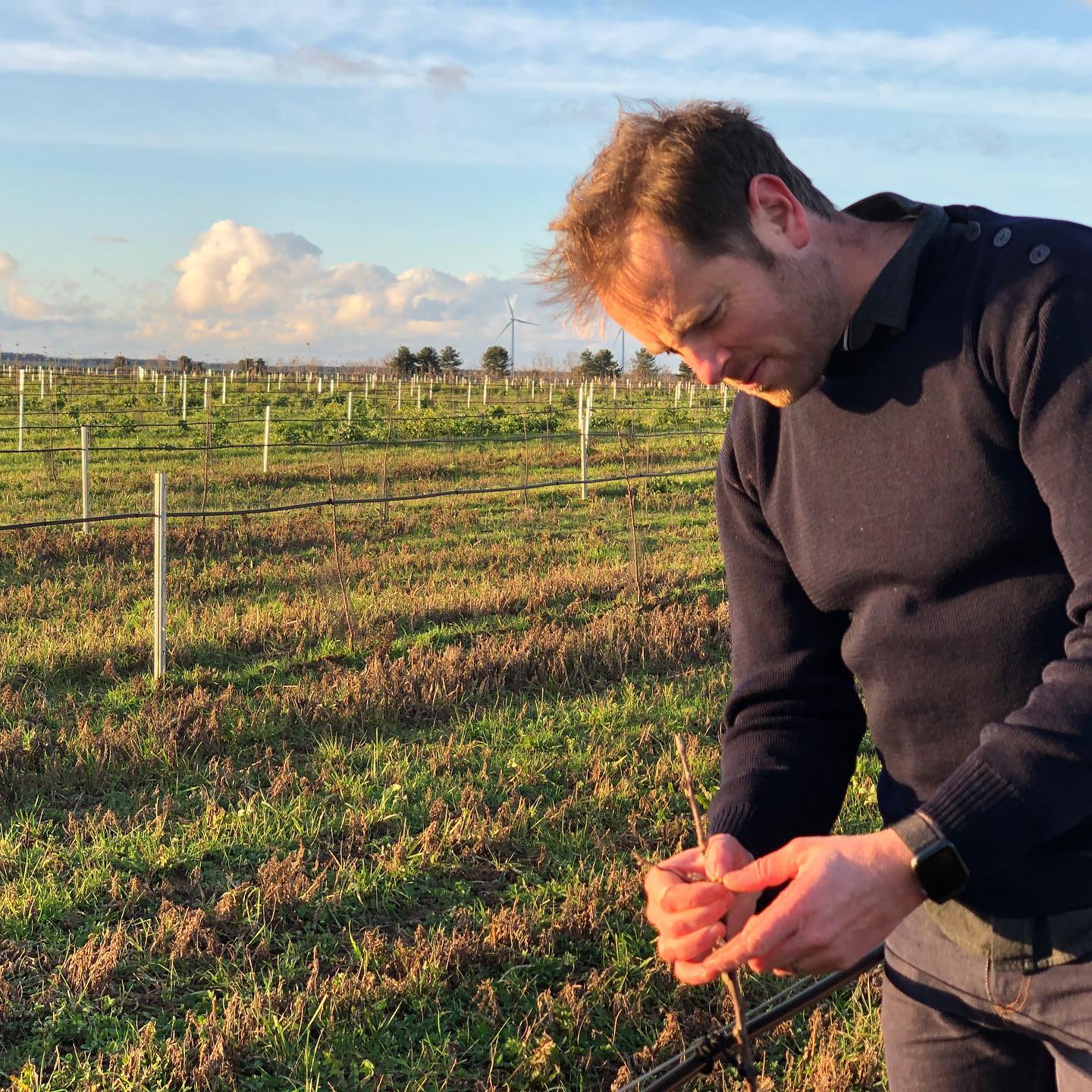
What is the main challenge for Calvados to grow both in France and internationally?
The biggest challenge for our category is evolving its image. We need to reposition Calvados as a premium spirit, with more modernity and impactful communication. Internationally, Calvados is sometimes overshadowed by other spirits, like Cognac, which benefit from very influential brands. What we might be lacking is that key player who can elevate the market.
How would you introduce Calvados to a friend?
Calvados has great potential in cocktails, especially as an aperitif. It’s all about timing, and I believe people are more open to trying new flavors earlier in the evening rather than at the end of a meal.
It’s also crucial to showcase the diversity of Calvados. With the wide variety of cider apples available, we produce a unique spirit, and cocktails are an excellent way to highlight this aromatic richness to a broader audience.
Do you have a favorite cocktail?
Right now, I really enjoy a Moscow Mule with Calvados – it’s delicious and very simple: 4 cl of Calvados “Le Songe” topped with ginger beer and ice. Maybe we could call it the “Norman’Mule”?
